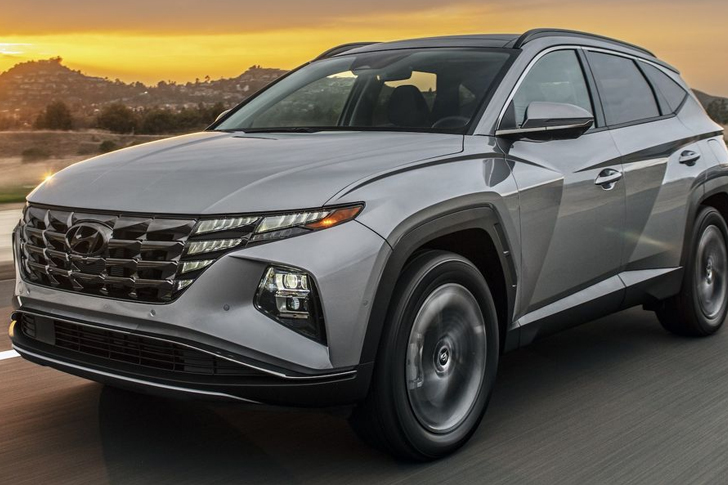Comprehensive Guide to SUV Reviews and Ratings
In the ever-evolving automotive world, Sport Utility Vehicles (SUVs) have become increasingly popular due to their versatility, space, and performance. Whether you’re looking for a compact crossover for city driving or a robust large SUV for family adventures, understanding how various models stack up against each other can significantly influence your purchasing decision. This guide offers a comprehensive review of SUVs, taking into consideration performance, space, reliability, and consumer satisfaction.

Understanding SUV Categories
SUVs are categorically divided based on size, price, and purpose, including subcompact, compact, midsize, and full-size SUVs. Subcompact and compact SUVs like the Honda HR-V and Toyota RAV4 respectively, are popular for urban driving due to their smaller size and better fuel efficiency. Midsize SUVs, such as the Ford Explorer, offer more passenger and cargo space, suitable for families. Full-size SUVs like the Chevrolet Suburban provide even more space and towing capacity, making them ideal for towing and off-road adventures.
Safety Features and Ratings
One of the primary considerations for any vehicle purchase should be safety. The Insurance Institute for Highway Safety (IIHS) and the National Highway Traffic Safety Administration (NHTSA) are key resources for understanding a vehicle’s safety credibility. For instance, the 2023 Subaru Ascent received an IIHS Top Safety Pick+ due to its superior crashworthiness and advanced safety features such as automatic emergency braking and lane-keeping assist. Meanwhile, vehicles like the 2023 Mazda CX-5 standout with a NHTSA 5-star overall rating, underscoring its excellence in safety measures.
Engine Performance and Fuel Economy
Engine performance and fuel economy are significant factors for many buyers. Eco-friendly SUVs like the Toyota Highlander Hybrid boast impressive fuel efficiency, attaining up to 36 mpg in combined city/highway driving conditions. On the performance end, models like the Kia Telluride come equipped with a robust 3.8-liter V6 engine, offering both power and smoothness, with an output of 291 horsepower and a towing capacity of up to 5,000 pounds.
Interior Comfort and Technology
The interior of an SUV is pivotal, especially for families. Modern SUVs like the Hyundai Palisade feature upscale interiors analogous to luxury brands, offering creature comforts such as heated and ventilated seats, a 10-inch touchscreen infotainment system, and multiple USB ports across all rows. Technological enhancements in SUVs can significantly tilt the scales, with features such as Apple CarPlay, Android Auto, integrated navigation systems, and wireless charging becoming increasingly common.
Consumer Ratings and Reliability
Reliability is a crucial aspect, impacting the long-term value and ownership satisfaction of the vehicle. Consumer Reports and J.D. Power provide extensive feedback on vehicle reliability based on owner surveys and expert reviews. For example, the Lexus RX has consistently scored high on J.D. Power’s reliability ratings, which is a testament to its long-term value and minimal maintenance issues. Additionally, customer satisfaction metrics can provide insights into how likely owners are to recommend their SUV, a critical factor in measuring overall contentment.
Comparative Cost of Ownership
When evaluating SUVs, potential owners should consider not only the purchase price but also the total cost of ownership, which includes depreciation, insurance, maintenance, and fuel costs. Certain SUVs like the Subaru Forester have historically exhibited lower depreciation rates and better residual values. Moreover, brands like Kia and Hyundai offering extensive warranty periods (up to 10 years or 100,000 miles powertrain warranty) can also significantly reduce long-term ownership costs.
Innovations and Future Trends
As the demand for SUVs increases, innovations in this segment are likely to determine the direction of future SUV designs and features. Electric and hybrid SUVs are gaining momentum, with models like the Ford Mustang Mach-E and the Tesla Model Y paving the way for zero emissions alongside traditional SUV utility. Features such as autonomous driving capabilities, improved battery technologies, and enhanced connectivity are expected to become standard in the coming years.
Conclusion
In conclusion, selecting the right SUV can vastly improve your driving experience and quality of life. By utilizing reliable sources for safety ratings, understanding the significance of engine performance, appreciating the comfort and tech advances of modern SUV interiors, considering consumer ratings and reliability, and evaluating the overall cost of ownership, buyers can make well-informed decisions tailored to their specific needs. The future of SUVs is bright, filled with advancements and innovations that promise to elevate the consumer experience to new heights.







Recent Comments